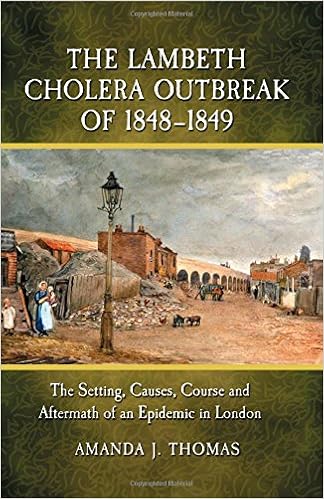"Deadly diseases may still exist in Kentish waters despite having laid dormant for hundreds of years, warns the author of a new book on cholera.
Hundreds of people died when an outbreak of the infection, thought to have been caused by poor living conditions near the Thames in Lambeth, south London, swept through the county in the mid-19th Century.
But despite only 35 cases of cholera having been reported in Europe since 2000, Amanda Thomas, author of The Lambeth Cholera Outbreak of 1848-1849, is warning that people should not be complacent.
She said: "I'd be very surprised if it still exists in the Thames because of all the cleansing work carried out there, but don't think it's gone away completely.
"On the one hand we can be too hygienic, which isn't good for our immune system, but washing your hands before you eat and after going to the loo is still very important.
"If your hobby is sailing and you're pulling wet ropes about all day then I would be particular about my hygiene, and I wouldn't advise anyone to go swimming in marinas either.
"I don't think cholera has left our shores so we need to be careful. It won't be terrorists or another war that kills the human race, it will be some sort of epidemic."
Cholera is an acute intestinal infection caused by ingestion of food or water contaminated with the bacterium Vibrio cholerae.
It produces an enterotoxin that causes a painless, watery diarrhoea that can quickly lead to severe dehydration and death if treatment is not promptly given.
In 2007 it was revealed that 90 patients had died at hospitals run by Maidstone and Tunbridge Wells NHS Trust following outbreaks of a different disease - Clostridium difficile (C diff) - between 2004 and 2006.
KOS Media then launched a hand-hygiene campaign to raise awareness about superbugs and to show how everyone can help to stop the spread of infection.
Mrs Thomas said the importance of hand-washing first came to public attention after the Lambeth cholera outbreak.
She added: "A lot of folklore about hand-washing probably stems from those cholera outbreaks, because once it's digested you can die very quickly. You can get it at breakfast and die by teatime.
"The areas worst affected in 1849 were places like Northfleet and Gravesend. Then it spread from there.
"It went to Medway then Dover in the space of three months, killing thousands of people. It was very nasty and would have been spoken about for years afterwards."
Mrs Thomas is a regular contributor to the Friends of Medway Archives (FOMA) newsletter, The Clock Tower.
The Lambeth Cholera Outbreak of 1848-1849 is available now, priced £37.95, through Amazon.
